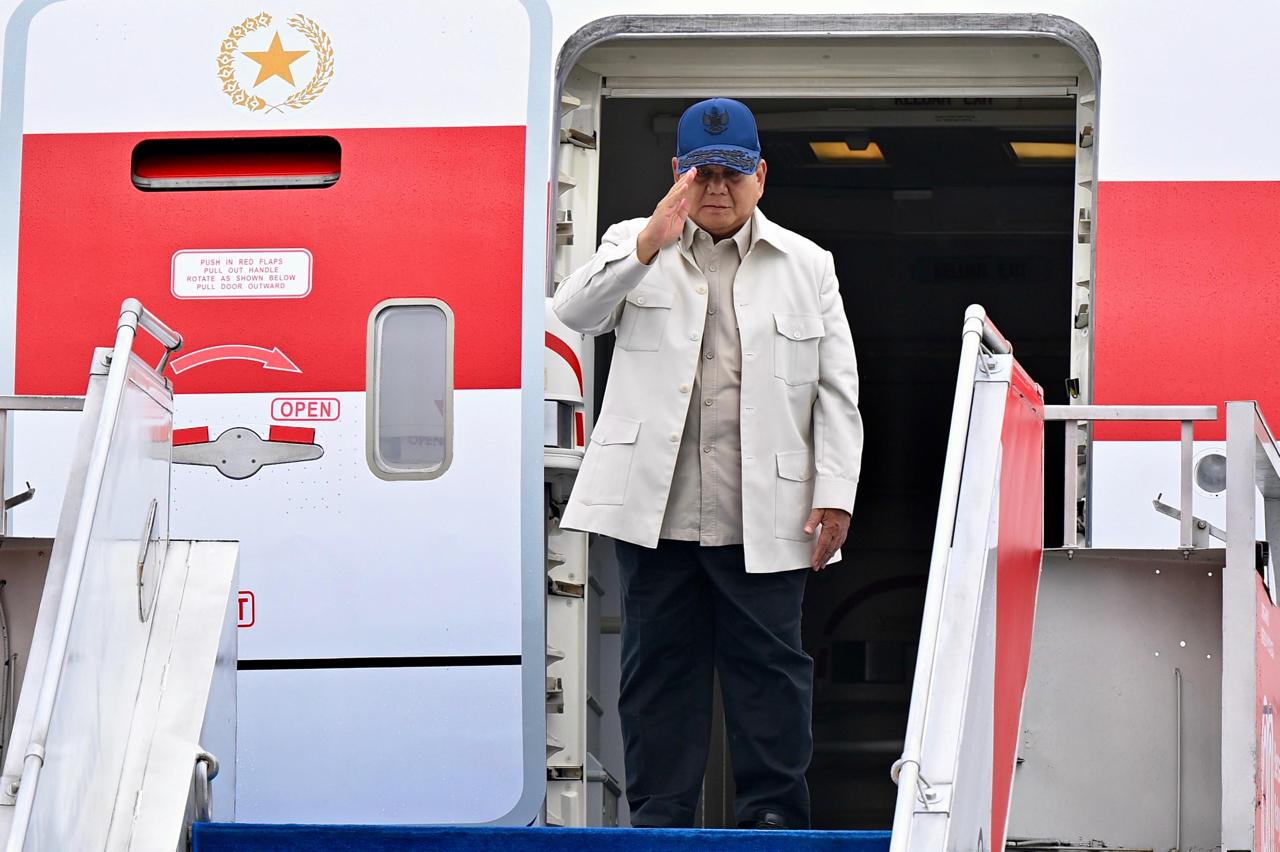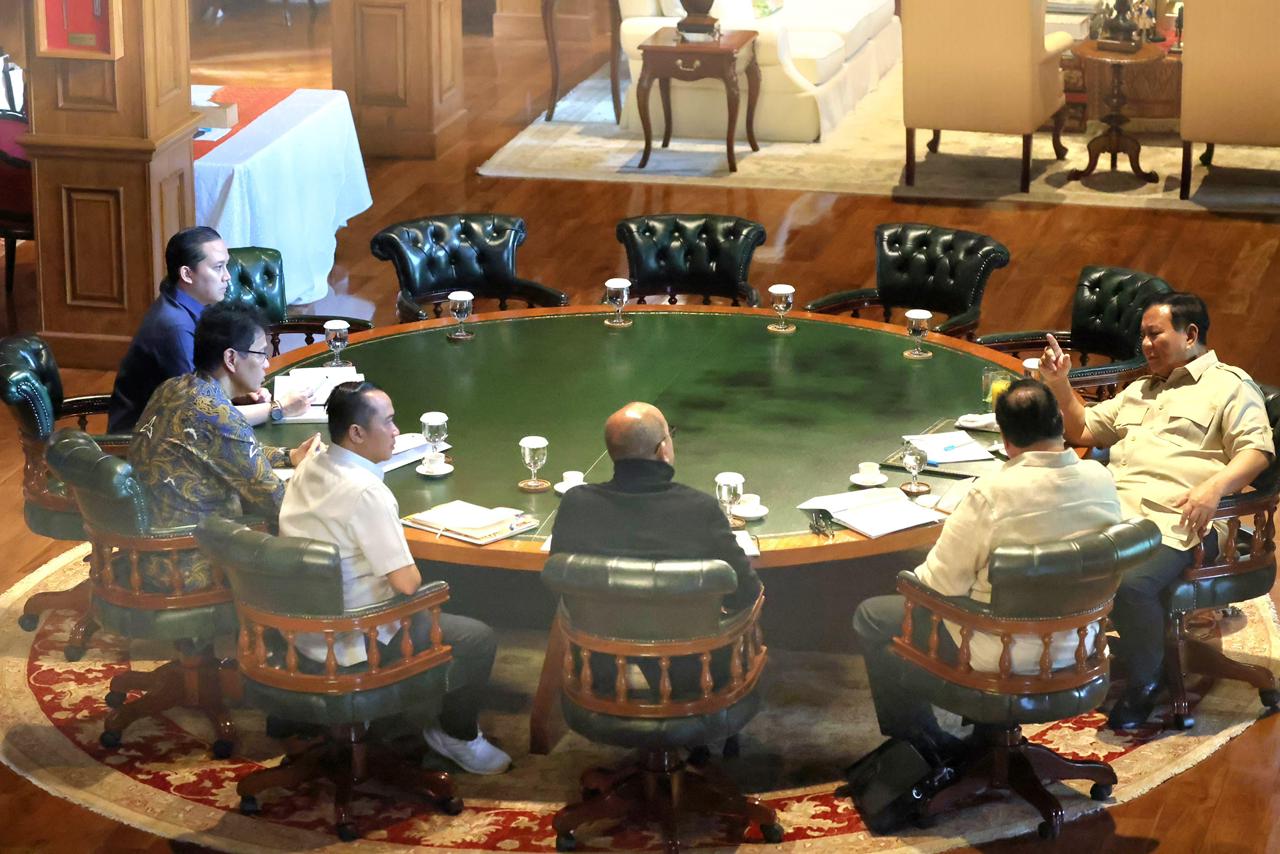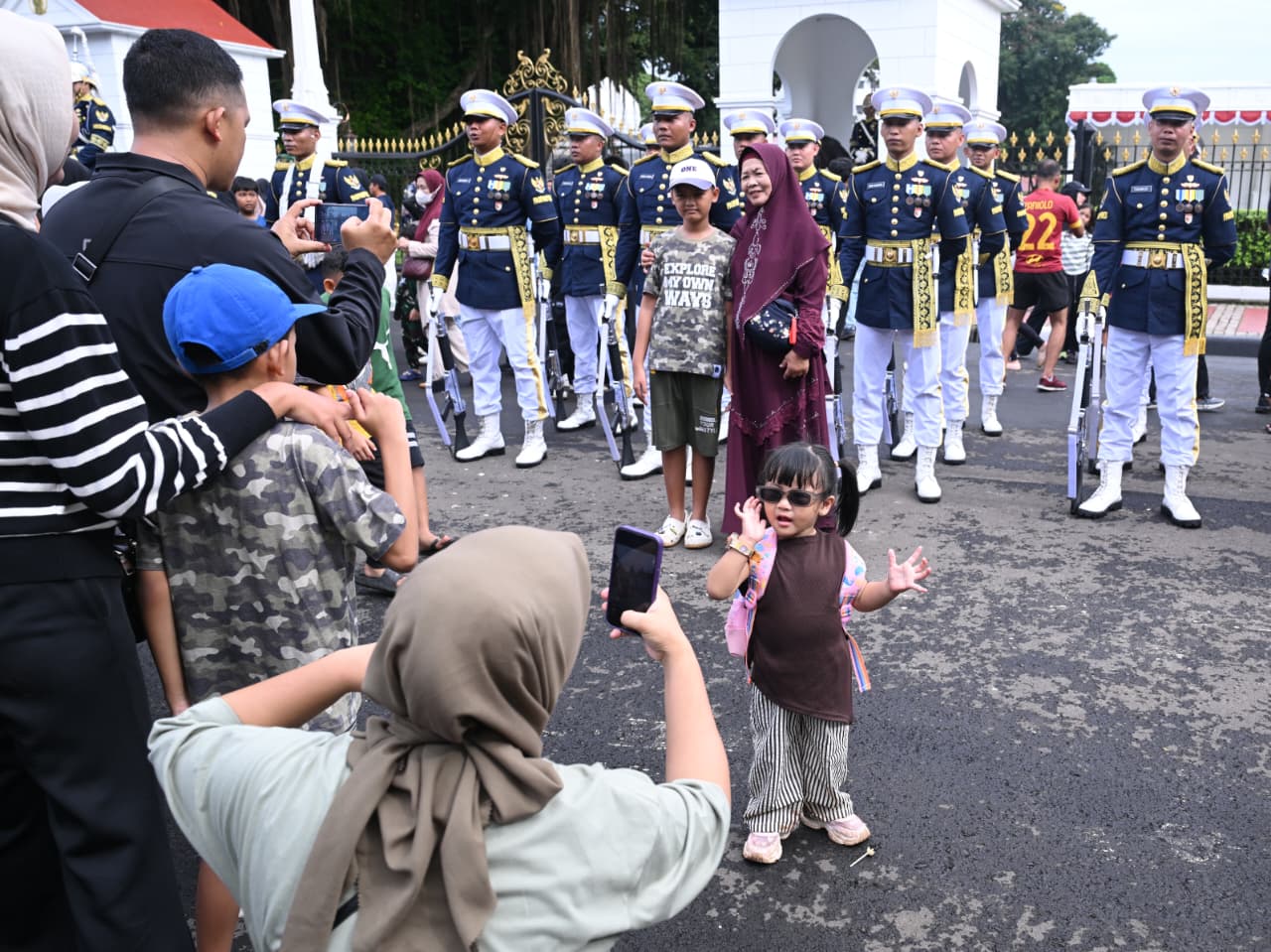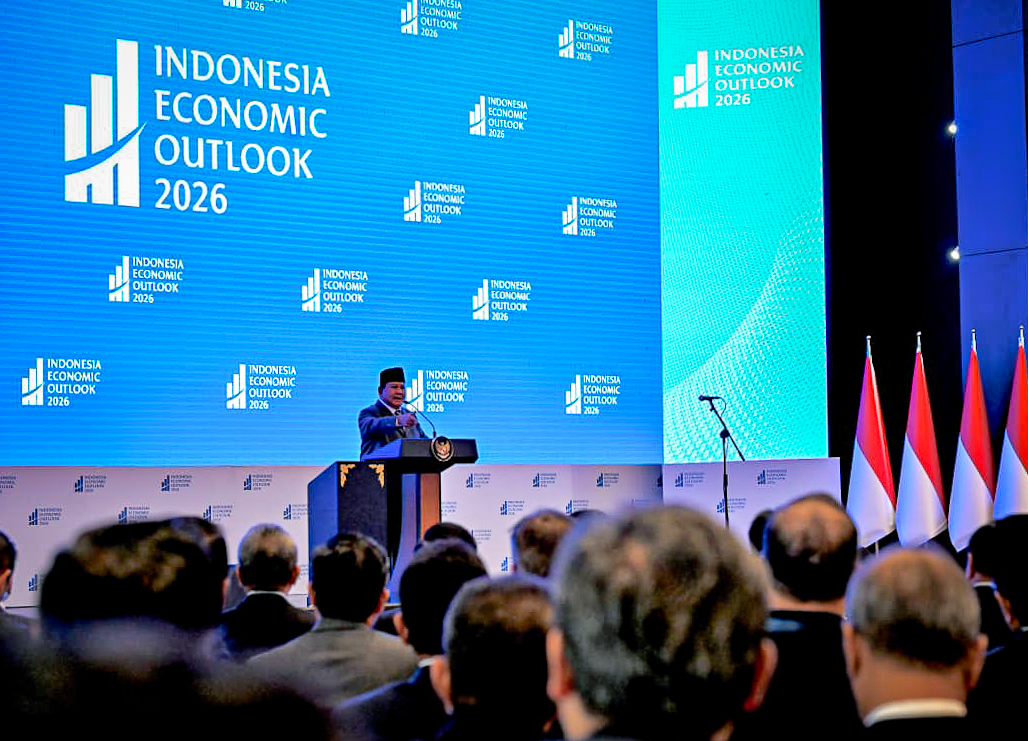Gov’t Encourages Regional Governments to Implement Educational Policy during Pandemic
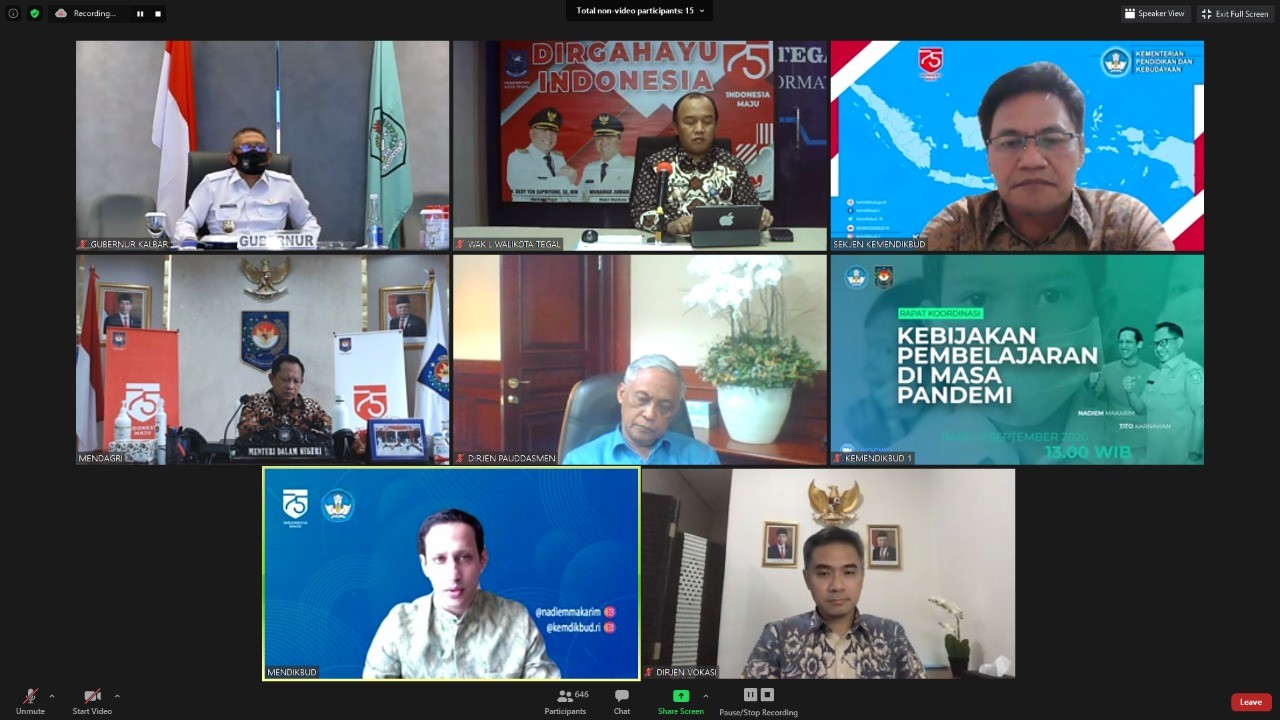
Minister of Education and Culture and Minister of Home Affairs attend a coordination meeting on the learning system during the pandemic with regional heads through video conference, Wednesday (2/9). (Photo by: PR of Ministry of Education and Culture).
In a bid to ensure learning system policies will be well-implemented amid the COVID-19 pandemic, Minister of Education and Culture Nadiem Anwar Makarim together with Minister of Home Affairs Muhammad Tito Karnavian has conducted a coordination meeting with all regional heads.
“The principle of policies on education during the COVID-19 pandemic is to maintain the health and safety of students, educators, education personnel, families, and communities, as well as the growth and development of students and psychosocial conditions in an effort to fulfill educational services during the pandemic,” Minister of Education and Culture Nadiem Anwar Makarim said in a virtual coordination meeting, Wednesday (2/9).
The Government has issued various policies and initiatives to deal with learning constraints during the pandemic, including a revision to the Joint Ministerial Decree (SKB) of Four Ministers on the learning implementation in yellow and green zones, which was issued on 7 August 2020.
In addition, the Government has also provided flexibility for schools to choose the best curriculum that suits the learning needs of students during the pandemic, as stipulated in Ministerial Decree of Minister of Education and Culture Number 719/P/2020 on Guidelines for Curriculum Implementation in Educational Units under Special Circumstances.
“Ministry of Education and Culture has also taken the initiative to help overcome the obstacles faced by teachers, parents, and students during distance learning,” Nadiem said.
According to him, the Government has made adjustments to the learning implementation in yellow and green zones to carry out face-to-face learning under very strict health protocols.
Educational institutions located in orange and red zones are still prohibited to carry out face-to-face learning and must continue to provide distance learning (BDR). “Face-to-face learning in schools located in yellow and green zones will be allowed, but not required,” he said.
The stages of face-to-face learning for educational units in the green and yellow zones in the adjusted Joint Ministerial Decree are carried out simultaneously at the primary and secondary education levels with consideration of health risks that do not differ for age groups at the two levels. Meanwhile, early childhood education can start face-to-face learning the soonest in two months after primary and secondary education.
“In addition, with the consideration that practical learning is a core skill of vocational schools, the implementation of practical learning for vocational students is allowed in all zones by obliging to implement strict health protocols,” Nadiem said.
“Evaluation will always be carried out to prioritize health and safety. The Education Office, Provincial or Regency/City Health Office, together with Head of the Education Unit will continue to coordinate with the task force to accelerate the handling of Covid-19, to monitor the level of risk of Covid-19 in the regions,” he stated.
“If it is indicated unsafe, for example, there are confirmed cases of COVID-19, or the level of risk in the area turns orange or red, the education institution must be closed again,” he added.
In the meantime, Minister of Home Affairs urged the local governments to ensure schools that have implemented face-to-face learning in orange and red zones to return to distance learning system, so the learning policy during the pandemic can be carried out in regions.
For the green and yellow zones, Minister of Home Affairs also urged local governments to prepare funds to help schools in fulfilling health protocols listed in the learning system readiness checklist and to monitor their implementation.
On that occasion, Minister of Home Affairs appealed to local governments to provide an understanding that emergency curriculum and learning modules are now available and it can be used, as well as an acceleration of population testing in areas to meet the minimum standard of the number of tests (1 person per 1,000 population per week for all regions) so that the zoning risk map is more accurate. “I urge regional governments to remind schools to fill in the cellphone number of students in the Education Ministry’s basic data center information (dapodik) to provide them free internet quota,” Tito said.
The Central Government has allocated assistance, while local governments are responsible to fulfill the school’s needs. Local governments can finance the school’s needs for face-to-face learning, such as sanitation and hygiene facilities, gun temperature gauges, and face masks.
“Local governments are encouraged to ensure and supervise the implementation of learning policies in schools,” Tito concluded. (PR of Ministry of Education and Culture / EN)
Translated by: Syarifah Aisyah
Reviewed by: Yuyu Mulyani





